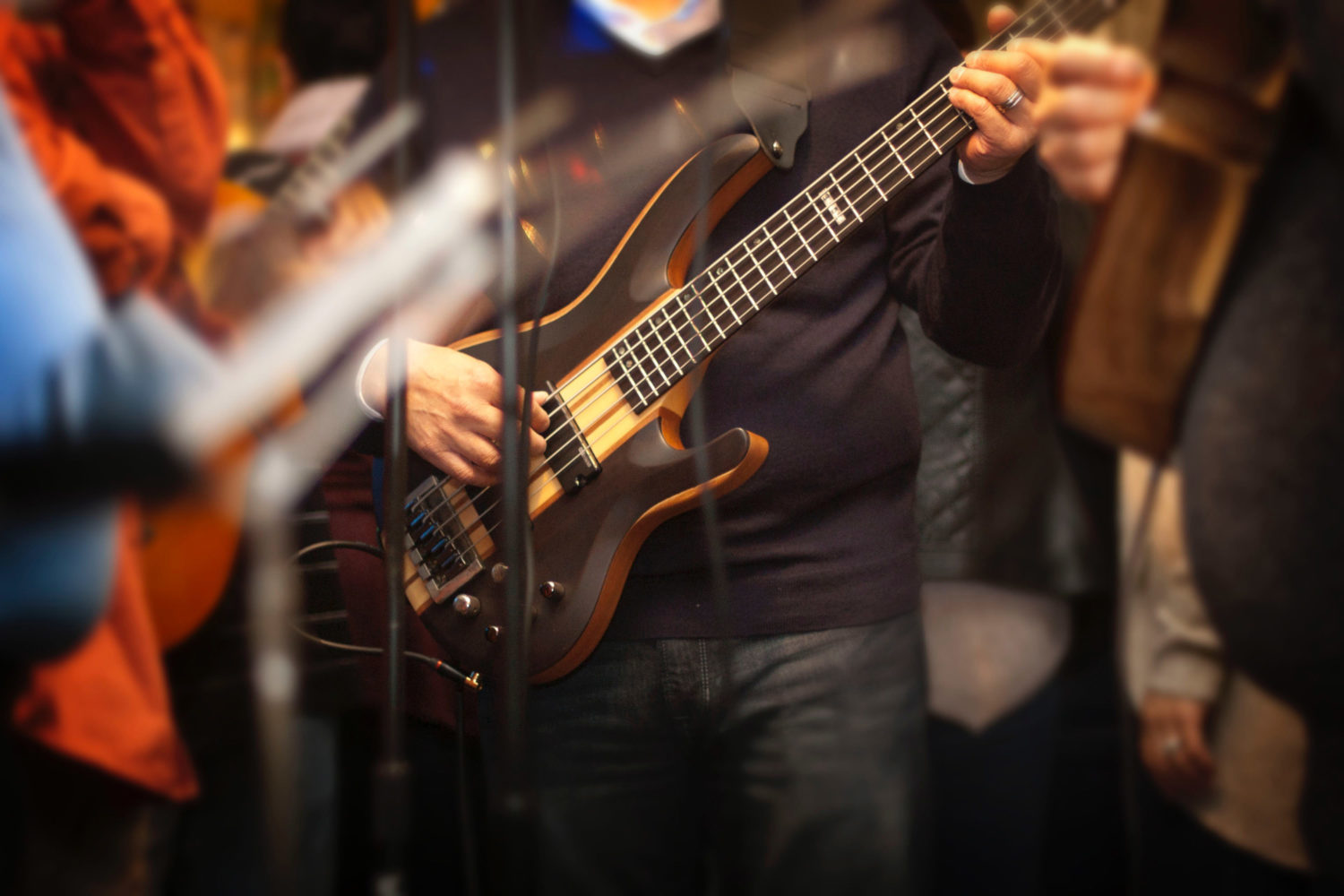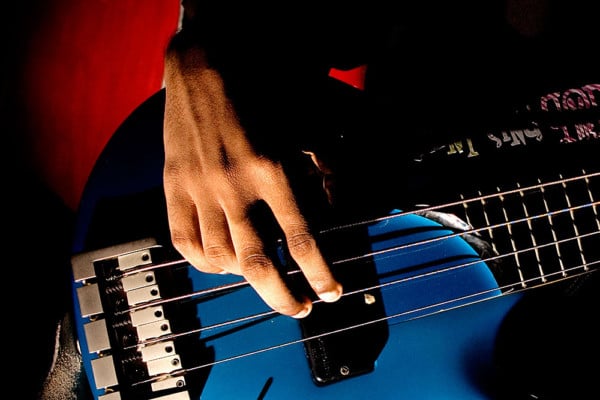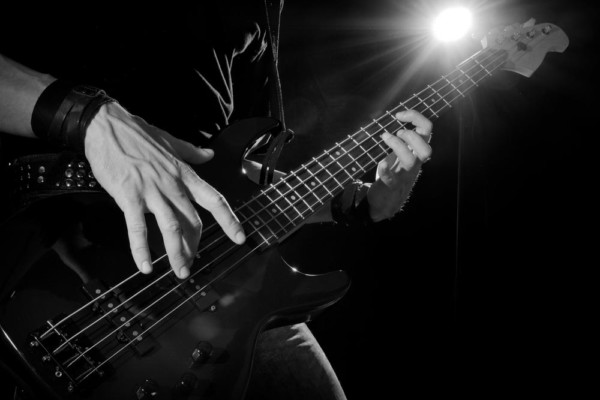What is Your “Voice” on Bass?

Q: How did you come to settle on your voice? Is it an amalgamation of several players? Something you’ve heard in your head and have strived to make it come out of a speaker? Other? It seems important as I hear many players sound like other players, but you have a unique voice and I now hear people “copying” your voice in the studio…
A: Although I’ve previously written about ideas around fostering the development of your “voice” on the instrument, I don’t think that I’ve ever discussed what your “voice” really is (at least, as I understand it).
As far as I can tell, one’s voice on the instrument is the complete culmination of everything they’ve practiced, learned, played, and explored on the instrument… run through the filter of one’s perceptions, interpretations, and life experiences.
If we take the common “music as a language” analogy and think of your actual conversational voice and personality we can pretty quickly grasp the concept.
The more life experience you have, the more street smart you may be. The more you’ve educated yourself, the more able to express abstract concepts you may be. The more you study the language, the more articulate you may be. The broader and varied your social group is, the more comfortable you may be in a variety of settings, conversing on a range of subjects. The more you read and exercise your mind, the more nimble it may be. The more you expand your social circle to encompass all walks of life, the broader your world view may be. All of these things have an effect on who you are as a person and how you are perceived by others based on the way you interact within the world on a human level.
And, as is often the case, who we perceive ourselves to be is often a bit different from how others perceive us. Why? Because they are perceiving the world through their own individual lenses crafted by the sum of their own lifetimes worth of experiences, traumas, joys, studies, expectations, etc…
The same is true of music. Your voice is so much more than what music you learn and what exercises you run in the shed. It’s not something you can necessarily control or work on directly but, rather something you can foster and help direct by virtue of the musical life you live both in and out of the shed.
If you listen to all of the music of the world, you’ll likely have a broader musical scope. If you learn every type of song in multiple genres, you’ll likely have a nice stylistic foundation. If you work on jazz theory and develop your reading, you’ll likely have a deeper understanding of how and why music works the way it does and be able to engage in more intellectual or heady musical situations.
You are what you listen to and how you practice, to a certain degree. You also have your own filter, developed by a lifetimes worth of personal experiences that have molded the way you hear, perceive, and react to things. This is as true in life as it is in music.
I have a theory that I’ve never really voiced externally. I may be completely bunk but I’ve always thought it an interesting idea.
I have always been surprised by certain players I’ve known over the years who can put all the right notes in all the right places and still make it feel wrong, sterile, or stiff in some way. While I also know players who maybe have no formal training but grew up playing with everybody. The might be sloppy as all he**, they may play more wrong notes per minute than you could personally live with, but everything they play connects. It feels good.
Many of us have experienced one side or the other of this phenomenon.
My theory is this: Those players who can do all of the right things and make it feel wrong, have a disconnect between the connections inherent to music and life outside of music. What they play has no emotional connection to what they’ve experienced in life. That boy/girl that broke their heart in high school is nowhere to be heard when they play that ballad, for example. While conversely, the player who maybe has bad technique, misses notes here and there, etc.. has a direct connection between the highs and lows of life and the music they are playing. The result is that WE connect to their playing because we connect with that emotion.
Emotions are not clean, perfect. They aren’t right in the center of the beat, they aren’t altered scales over dominant chords. Not to say that one shouldn’t learn those and how to employ them, but to make that the be-all-end-all misses the point.
My advice is to envision the player you want to be and work your butt off. Learn everything you can that seems to have a direct line to that person’s music. But, in addition, experience life as fully as you can and bring that with you when you speak musically. Don’t just hear what you play but try to feel the connection your notes have with the music. Listen to the band as a whole, in the 3rd person, and try to play what you want to hear (as opposed to what you think somebody else wants to hear. (*unless it’s the person signing your checks… then play what THEY want to hear.
Foster your development both as a musician and as a human. Strive to realize your ideal version of yourself in every way and in every facet of your life and music.
And have fun doing it!!
Have a question for Damian Erskine? Send it to [email protected]. Check out Damian’s instructional books, Right Hand Drive and The Improviser’s Path.




I couldn’t agree more.. Thanks for the food for thought !
Well said! Lovely writing to boot. Thank you